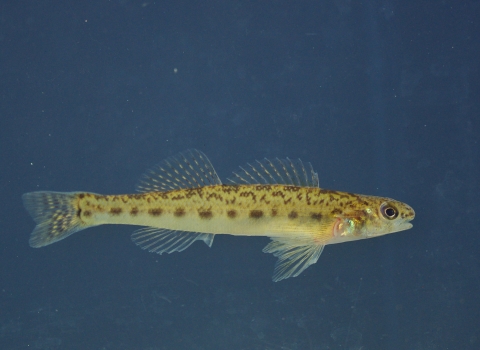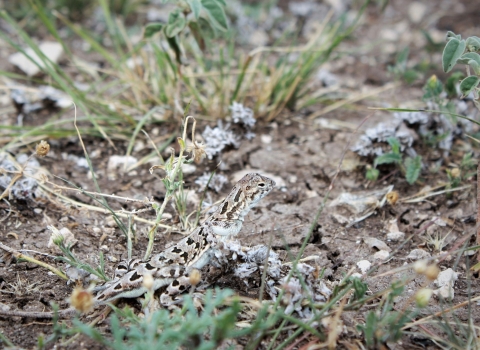The U.S. Fish and Wildlife Service announces the designation of 524 river miles of critical habitat in Mississippi for the pearl darter April 6, 2023, an important step toward restoring the species to the Pearl River drainage.
The threatened pearl darter, like many other American darters, is a small bottom dwelling fish requiring protection under the Endangered Species Act. Its historical range includes the Pascagoula River and Pearl River drainage systems, but it has not been recorded in the Pearl for over 40 years.
The critical habitat is comprised of two units, one occupied and one unoccupied, in Mississippi’s Clarke, Covington, Forrest, George, Lauderdale, Jackson, Jones, Newton, Perry, Simpson, Stone and Wayne counties.
Unit 1 includes 494 river miles of the Pascagoula River drainage and makes up the occupied critical habitat. Thirty river miles of critical habitat in Strong River, the headwater of the Pearl River, makes up the unoccupied designation as Unit 2. The critical habitat in Strong River will allow pearl darters propagated at the Private John Allen National Fish hatchery to be reintroduced into the Pearl River drainage. Both occupied and unoccupied critical habitat are essential for the conservation of the species and were designated as part of a transparent, inclusive process based off the best available science.
The pearl darter currently faces threats due to erosion, sedimentation, poor water quality and pollution. Small, scattered populations lack genetic diversity making them vulnerable to random events such as floods, droughts or pollutant spills.
The Service first proposed a total of 517 river miles in July 2021 and made the proposal available for comment and review. As a result of information received during that comment period, an additional seven miles of critical habitat were included in Chunky River for the final designation at the request of the Mississippi Department of Wildlife, Fisheries, and Parks.
Establishing critical habitat raises awareness of the needs of a species and helps to focus the efforts of our conservation partners. It also alerts federal agencies that they are required to make special conservation efforts when they work, fund or permit activities in those areas. The designation will have no impact on private landowners taking actions on their land that do not require federal funding or permits.
The Service is committed to working with local communities, state and federal agencies, Tribes, conservation groups and private sector partners to ensure they have the tools they need to protect and recover America’s imperiled species.
The rule goes into effect on April 8, 2023, and will be posted on regulations.gov, Docket No. FWS-R4-ES-2020-0062. Visit our frequently asked questions for more information.
FOR FURTHER INFORMATION CONTACT: James Austin, Field Supervisor, U.S. Fish and Wildlife Service, Mississippi Ecological Services Field Office, 6578 Dogwood View Parkway, Jackson, MS 39213; telephone 601–321–1129. Individuals in the United States who are deaf, deafblind, hard of hearing, or have a speech disability may dial 711 (TTY, TDD, or TeleBraille) to access telecommunications relay services. Individuals outside the United States should use the relay services offered within their country to make international calls to the point-of-contact in the United States.
The mission of the U.S. Fish and Wildlife Service is working with others to conserve, protect, and enhance fish, wildlife, plants, and their habitats for the continuing benefit of the American people. For more information on our work and the people who make it happen, visit www.fws.gov/southeast. Connect with us on Facebook at www.facebook.com/usfwssoutheast, follow our tweets at www.twitter.com/usfwssoutheast, watch our YouTube Channel at http://www.youtube.com/usfws, and download photos from our Flickr page at http://www.flickr.com/photos/usfwssoutheast.
-FWS-



